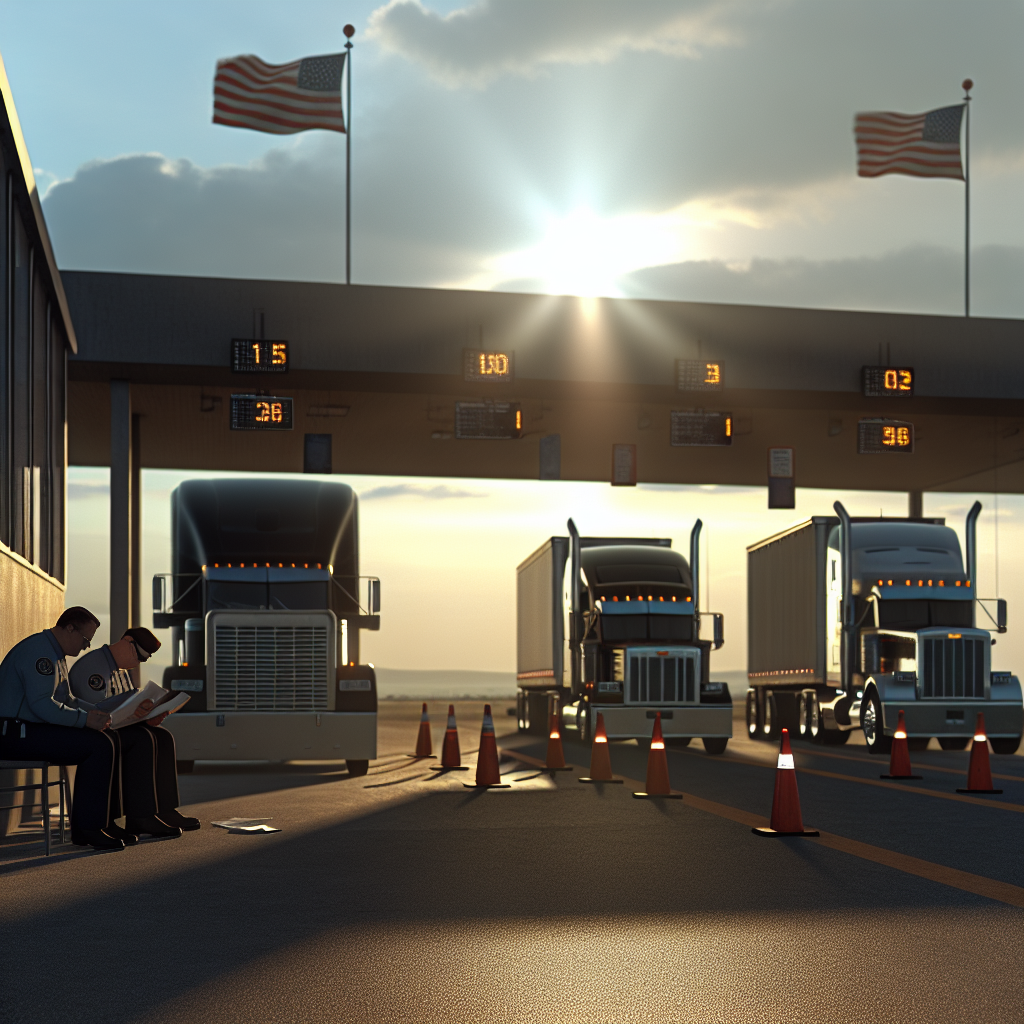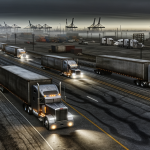A House proposal unveiled this week zeroes in on carriers and brokers that put foreign drivers without legal status behind the wheel in the U.S., intensifying Washington’s months-long campaign to tighten who can get and keep a commercial driver’s license. The measure, described by its sponsors as a safety fix, would harden state-level screening around lawful presence and immigration verification and threaten penalties for agencies that fall out of step — a signal to fleets that paperwork lapses may soon carry far steeper consequences than a roadside citation. (Primary source: FreightWaves.)
For trucking operators, the headline isn’t just politics — it’s operations. If the bill advances in its current shape, expect more rigorous front-end verification at onboarding and renewal, narrower use of non‑domiciled CDLs, and faster revocations when a driver’s underlying status changes. That raises immediate checklist items for safety and HR teams: confirm how your state DMV will verify status, ensure your carrier files can prove lawful presence at the time of hire and today, and add contract language with staffing partners and leased‑on owner‑operators that shifts liability if a credential later proves invalid. (Primary source: FreightWaves.)
Momentum on Capitol Hill is real — and not confined to a single bill. On October 3, Rep. David Rouzer filed a separate measure that would tighten the rules states must follow when issuing CDLs to non‑domiciled individuals, underscoring a broader appetite in the House to standardize and stiffen eligibility screens. While that bill is at the very start of the legislative process, it points to a multi‑track effort that fleets should monitor as committee work begins.
The policy squeeze is arriving alongside a market shock that could hit fleet balance sheets within weeks: the White House on October 6 announced a 25% tariff on imported medium‑ and heavy‑duty trucks effective November 1. Mexico — the top source of U.S. heavy truck imports — warned of supply chain blowback and emphasized the U.S. content embedded in those vehicles. For carriers planning to refresh power units in Q4–Q1, the tariff risk is higher purchase prices and longer lead times — just as compliance costs may rise. Shippers with Mexico‑U.S. lanes should also expect pricing conversations to reflect both capacity and equipment cost uncertainty.
One more caution for compliance teams: viral claims can muddy the risk picture. Over the weekend, a widely shared post suggested New York issued a CDL to an undocumented driver labeled “No Name Given.” State records show the credential in question was a federally compliant Real ID — which undocumented applicants cannot obtain — issued to a person with legal work authorization, and the “No Name Given” field reflects how U.S. systems handle mononymous names. Bottom line: don’t base policy changes on social media screenshots; verify with issuing agencies and keep documentation trails tight.
Why it matters for trucking: Regardless of one’s politics, the direction of travel is clearer rules, stricter verification and less tolerance for gray areas around status, language proficiency and credential transfer between states. That raises exposure for fleets that cut corners on vetting or rely on third‑party recruiters. Practical steps now: audit every driver qualification file for lawful presence evidence; confirm your state’s SAVE/immigration check workflows; update broker‑carrier agreements to require proof of lawful status for subcontracted drivers; and scenario‑plan equipment purchases in case tariffs stick and order books tighten.
What to watch next: committee hearings on the House proposals, potential state pushback (especially from high‑volume licensing states), and legal challenges over federal funding penalties. On the cost side, keep an eye on how OEMs and dealers price tractors assembled in North America versus offshore as November 1 approaches — and whether shippers accept surcharges tied to policy‑driven cost increases.
Sources: FreightWaves, Reuters, Albany Times Union
This article was prepared exclusively for TruckStopInsider.com. Republishing is permitted only with proper credit and a link back to the original source.





